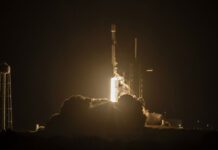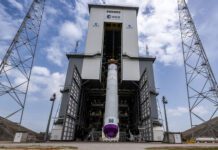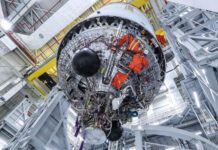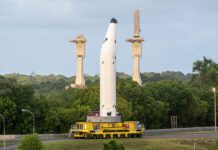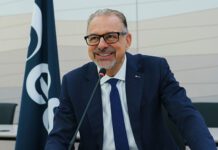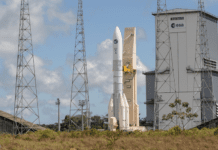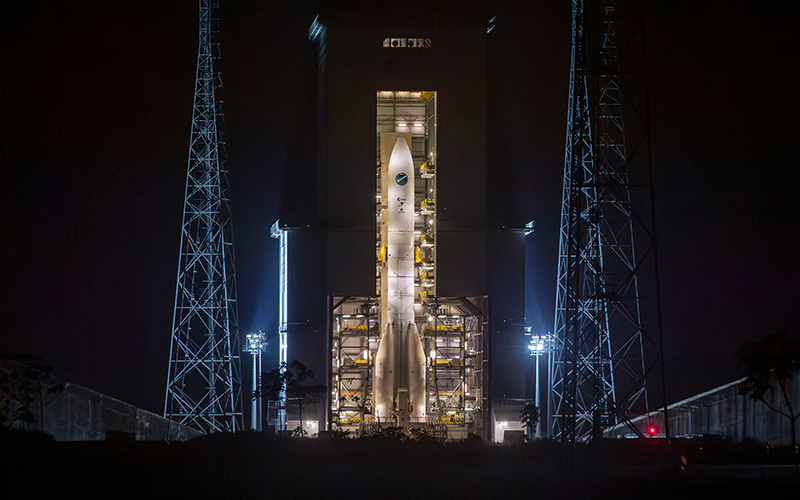
ESA/CNES/Arianespace/ArianeGroup/Optique video du CSG-S. Martin
ArianeGroup CEO Martin Sion has suggested that the company may not have “understood the reality of the situation” when it promised to debut Ariane 6 by 2020.
Sion made the comments during an interview with French news outlet Le Monde. The CEO took over from André-Hubert Roussel in April, with speculation at the time that the change was the result of continued Ariane 6 development delays.
When asked by La Monde about what factors contributed to the four-year delay of the maiden Ariane 6 flight, Sion did not point to the usual ArianeGroup-approved talking points. The first element Sion identified is the fact that ArianeGroup was a brand-new company when it was awarded the critical task of developing Europe’s next heavy-lift launch vehicle.
“The company had just been created…” explained Sion. “It was therefore necessary to integrate five entities and simultaneously define new governance between ArianeGroup, ESA, and the National Center for Space Studies.”
Next, Sion identified a lack of skilled engineers within its ranks, stating that many who had worked on Ariane 5 had, by the start of the development of Ariane 6, retired.
“We also had to recreate skills that we had lost. Indeed, between the decisions to launch the two launchers, a generation of engineers had passed, Ariane-5 having been decided in 1988, more than twenty-five years earlier.”
However, the third cause for the four-year delay identified by the ArianeGroup CEO may have been the most telling. Sion stated that there had been a “lack of detailed preliminary projects” that were necessary for “technical de-risking.”
Airbus and Safran, the two companies that partnered to create ArianeGroup, presented their proposal for their version of Ariane 6 in dramatic fashion on the lawn of the French President’s Élysée Palace in the company of then-President François Hollande on 16 June 2014. Less than six months after that announcement, ESA member states had agreed to fund the concept. In August 2015, contracts were signed, and €680 million in initial funding was given to a company that was only officially created in January that same year.
With this decision, ESA member states rejected a concept that teams of engineers had worked on for more than 18 months. This concept called for two solid-fueled boosters that would have been nearly identical to the rocket’s solid-fueled first and second stages. A Vinci-powered third stage would have completed the rocket. The economies of scale involved in manufacturing so many identified solid-fueled motors was a key element in ensuring the design could achieve the then ESA-mandated price of €70 million per launch. This carefully studied alternative was rejected, and all the planning and derisking that went into the design along with it.
Would this rejected concept have been substantially better than the current Ariane 6 design? It’s difficult to say. It would have undoubtedly meant that the centres focused on developing liquid fuel engines would have been negatively affected.
Finally, Sion, predictably, pointed to COVID-19 as an additional cause for the delays.
Sion’s comments are really not that surprising to anyone who has been paying attention over the years. However, it’s pretty startling that they are now being expressed so publicly by the CEO of ArianeGroup himself. It’s almost like the company has just received massive financial and commercial guarantees that have ensured its future for years to come.

